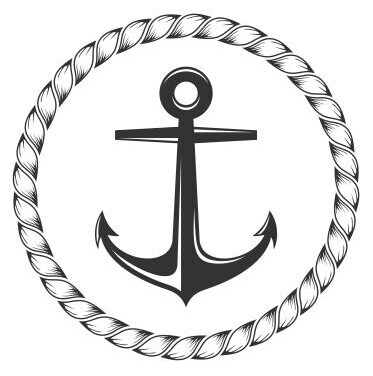- This topic has 4 replies, 2 voices, and was last updated 4 years, 9 months ago by
 cat60y.
cat60y.
-
AuthorPosts
-
04/07/2020 at 15:46 #13206
WHAT TO STUDY?
We’re all aware that most machinery manuals are hundreds of pages- wtf to study?
ALL of the following can be tested in your class 5 exam, and necessary when you work as 5/E, 4/E and 3/E.
1. Study machinery manuals. Specifically,
– Oily water separator
– Fresh water generator
– Purifier
– Main air compressor
– All types of pumps (roughly divided into water, and oil pumps)
– Sewage treatment plant
– Diesel Generator (also called auxiliary engine)A) Which parts of the manuals to focus on?
– Working principle
– Flow diagram (e.g. For F.W.G, where does the jacket cooling water, seawater, and freshwater flow in/out of F.W.G)
– Overhaul procedure
– Cross section diagram of machinery
– Troubleshooting guide *VERY IMPORTANT*
– Alarms and how to test those alarmsDo the same procedure for all the above-mentioned machineries.
2. Trace major pipelines in engine room
– Fuel oil
– Seawater
– Freshwater
– Lub. Oil
– Bilge
– Fire-fighting lineIf you have the time, trace the other pipelines such as steam and compressed air.
3. Critical procedures
– Preparations for manoeuvring
A) at end of passage, prepare for arrival to port.
B) in port, prepare for departure from port till ship is full away.
– Bunkering (paperwork calculations and actual physical bunkering procedure)
– Emergencies
What is your duty when the following happens:
A) Fire
B) Abandon ship
C) Oil spill
D) Blackout
E) Grounding
F) Collision04/07/2020 at 15:57 #13208SHOPPING LIST:
1. Box of cheap black pens
2. Basic stationery (pencil, rubber, ruler etc. for TARB assignments)
Note: Onboard we don’t use correction tape or fluid. Cross out mistakes with a single strike-out.3. Small notebook/notepad for carrying in boiler suit pocket
4. Rechargeable torchlight
5. Rechargeable headlampTip: Order on Aliexpress, or buy them in Beach Road area. Onboard torches are usually low quality.
22/07/2020 at 11:09 #13269ACRONYMS & short-forms
Honestly seafarers love short forms, might take some time for the new engine cadet to pick up!Fluid/mediums
S.W = Sea Water
F.W = Fresh Water
C.W = Cooling Water
J.C.W = Jacket Cooling Water
Jkt = Jacket
Comp. air = Compressed air
D.O = Diesel Oil
M.G.O = Marine Gas Oil
F.O = Fuel Oil
L.S.H.F.O = Low Sulphur Heavy Fuel Oil
L.O = Lubricating Oil
Cyl. Oil or C.L.O = Cylinder Oil or Cylinder Lubricating Oil (* Only for 2-stroke Main Engine)
Hyd. Oil = Hydraulic OilMachineries
M/E = Main Engine
A/E = Auxiliary Engine
D/G = Diesel Generator (* same thing as A/E, just different name)
Aux. Blr = Auxiliary Boiler
E.G.E = Exhaust Gas Economiser
E.G.B = Exhaust Gas Boiler
P/p = Pump
Clr = Cooler
Htr = Heater
Puri. = Purifier
S.T.P = Sewage Treatment Plant
F.W.G = Fresh Water Generator
V/v = Valve (technically not a machinery, but)
M.A.C = Main Air Compressor
A/C = Air Conditioning
HVAC = Heating, Ventilation, Air Con
Prov. Ref. = Provision RefrigerationStructure
Tk = Tank
E.C.R = Engine Control Room
E/R = Engine Room
W/H = Wheelhouse
Acc. = Accommodation03/09/2020 at 22:26 #13510I guess the box of pens comes handy when Ships stationaries are running low uh. Hahah, I hate it when we are running up and down in search for a pen.
Adding on to what cadets can buy:
1) Extention plugs
2) Travel Adapter
3) Socks, towels, for me i just go and spend Emart credits. Finish contract just throw them away
4) its advisable to get some medicines for yourself though ships have their own. Panadol, Pipagao (for sore throat), Po chai Pills (in case you laosai first day onboard or not used to food onboard)
5) Supplements, multi vitamins (if you want)
6) re-hydration salts ( for engineers, sometimes engine room really make you sweat tons of water, and you get cramps ) -
AuthorPosts
- You must be logged in to reply to this topic.
